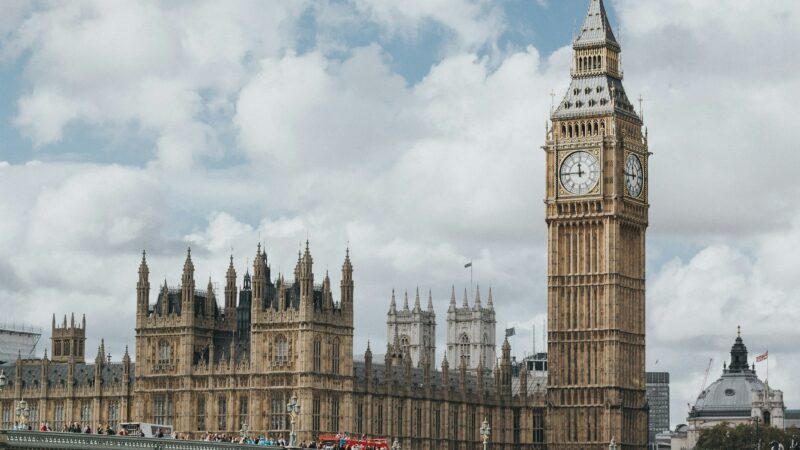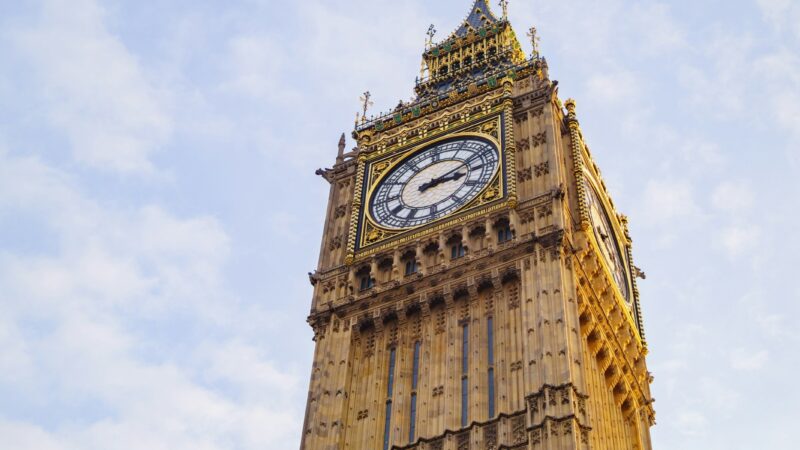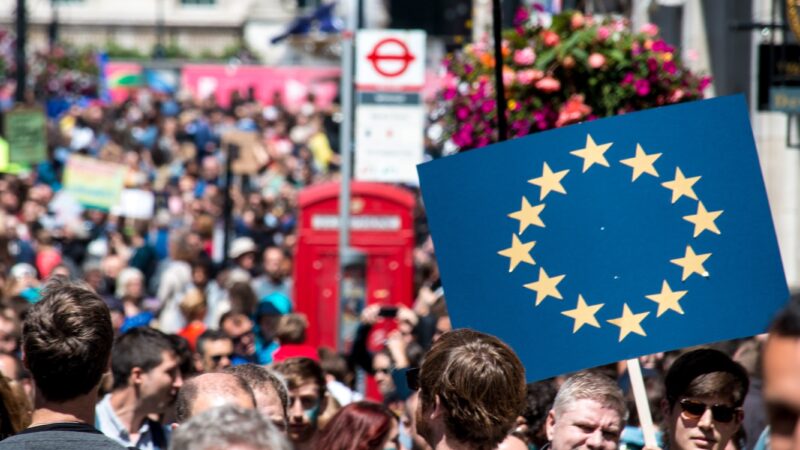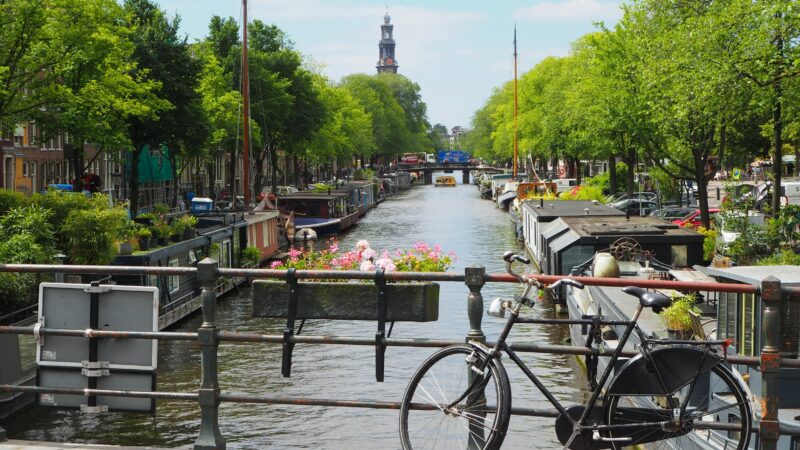Why we need a Hitchens-Navalny strategy for GE 2024
A few days before the 2010 general election, Peter Hitchens wrote an article in the Daily Mail titled ‘This is the most important article I’ve ever written – and loyal Conservative voters will hate me for it’.
In it he argued that, despite being counterintuitive, voters must eschew the Tories if there was to be any chance of implementing a genuine, conservative agenda for Britain.
Much of its analysis of Britain’s woes are completely applicable today. He ends it by writing: ‘Five years’ from now we could throw the liberal elite into the sea, if we tried. But the first stage in that rebellion must be the failure of David Cameron to rescue the wretched anti-British Blair project and wrap it in a blue dress’.
Fourteen years later, not only is the anti-British Blair project wrapped in a blue dress still ruling the country, but David Cameron is again one of its leading figures, rubbing more shoulders at Davos and advocating military actions more brutal and destabilising than even Blair could dream of.
In 2019, Brexit allowed the Conservatives to completely refresh their image and successfully brand themselves as a populist national-conservative party. I myself, for the first (and last) time, voted for them in that election. For this I am ashamed.
What has transpired since is that, what we once identified as Blairism, is in fact part of a wider and even more sinister agenda. If what Hitchens realistically desired was an internal struggle within the Conservatives after a 2010 loss, what we can achieve today is that party’s shattering into a million tiny pieces.
‘But Labour will be even worse’, you will undoubtedly hear the Tory Boys cry. If this was convincing and arguable back in 2010, today it is wrong on its face.
If grassroots supporters and ordinary voters could hear how Tory journalists, politicians and advisors speak amongst themselves, they would be taken aback over how deeply their views are reviled and how deep the liberal rot is.
It is a party run almost entirely by childless, rootless metropolitans, whose view of conservatism is a Randian wet dream of identikit glass skyscrapers and GDPmaxxing.
When it comes to social values, foreign policy, education, health and every other significant policy area, there is no difference between them and the people who run Labour.
In fact, I would go as far to say that Labour is actually run by more ‘normal’ people. So why is it so important to destroy the Tories? Because of what comes after.
Starmer’s Labour is at this stage a well-oiled machine raring to go. Unlike the Tories, it does not pretend to be something it is not. It is an out-and-proud party of the Davos agenda.
Its current popularity is based on it not being the party to preside over the last decade and a half of chaos and decline.
If we are going to have a globalist government, let’s have the exhibitionists instead of those in the closet, as this will help the public correctly identify their enemies.
Right now, there is no appetite on the left to disrupt Labour from its course, but once they are in power it will not take long for the Corbynista wing to start making movements.
This could remove from Labour the contingent that actually can make some common cause with the dissident right (Euroscepticism, averseness to dangerous foreign entanglements, distrust of corporate and financial elites, and a belief in the nationalisation of strategic industries come to mind).
More important is what happens to the Conservatives. Hitchens correctly identifies the Westminster consensus as being ‘only propped up by state funding and dodgy millionaires’.
The funding is allocated based on the number of seats a party holds, and the donations on its prospects of power. A Tory wipe-out would kill both birds with one stone.
If the rump of it is allowed to remain as a significantly large party, it is likely to limp on and even capitalise on its new ability to talk the talk from the opposition benches without having to walk at all.
A vacuum, which we know nature abhors, must be created in its place.
Current polling shows that support for Reform UK could cost the Tories many seats in favour of Labour, despite Reform not winning any themselves.
Reform platform is a damn sight better than anything else out there, but Richard Tice’s neocon Tory-lite outfit will not bring about the reform we actually need. It could, however, be the catalyst for it.
Destroying the Conservative Party once and for all would be a noble and worthwhile aim, and would open the door for major, long-needed shakeup of our politics.
This is a strong argument that Tice would be well advised to use, but predictably he will say that the Brexit Party stood aside for the Tories in 2019 and they failed on Brexit and immigration, so this time they won’t stand aside.
He will, equally predictably, be countered with the argument that he will still let Labour in without winning seats himself.
Openly declaring war on the Tories as a necessary first-step in building a viable and genuine conservative political movement is something that is hard to argue against. Such a battle cry could also attract non-Tory voters.
The only Reform UK politician I have heard express this intent openly is its Co-Deputy Leader, Ben Habib. So it is not an impossibility that they take this line.
Habib is the real deal, but would need someone with the profile of Farage to meaningfully spread this message.
If the straightjacket of the two-party system can be broken, a genuine political realignment can take place, making the ‘Red Wall’ shift pale in comparison.
You might now be wondering where Alexei Navalny comes into all of this.
We have all heard of ‘tactical voting’, but have you ever heard of ‘smart voting’?
Umnoye golosovaniye was a website set up by Navalny’s Anti-Corruption Foundation that had a single goal: letting people know who to vote for to have the best chance of ousting incumbent United Russia politicians.
Unlike British tactical voting, this was an integrated, mathematical system that had no limits or any other goals, and would advise you to vote for communist, ultranationalist and liberal candidates alike; whoever had the best chance.
Many in the ‘non-systemic opposition’ said it would be impossible to vote out the ruling regime in any case, and that engaging with it by participating in elections would only legitimise it. Yet Navalny argued convincingly that shouting from the side lines alone ultimately changes nothing.
For obvious reasons, success of smart voting was limited in the Russian system, but it is a strategy much better suited to our own system of illusory free elections, which are based on brainwashing and narrative control, as opposed to the more primitive techniques used by the Kremlin.
There, the process of voting itself has to be manipulated to maintain the status quo, with there being a limit to the amount achieved by propaganda alone.
Here in the UK, propaganda is the overriding method of keeping out the non-systemic opposition.
What this means is that our actual electoral system is, compared to the American one at least, largely free from rigging and ballot manipulation.
This provides opportunity to collapse, or at least fracture, what is an all-encompassing regime by using its own structures against it.
The Conservative Party is the weak link in the chain – and it can be broken.
The success of a British smart voting system would depend on how convincingly the argument is made.
If it is made well enough, we could indeed throw the liberal elite into the sea five years from now.










Another Organization? Splendid!
Popular Conservatism (PopCon) has just launched and it’s about as popular as booting a crippled dog into oncoming traffic. Spearheaded by Liz Truss, the shortest serving Prime Minister in British political history and the most unpopular Conservative politician in the country, the organization is begging to be ridiculed by the media and the public.
However, whilst Truss is the face of the group, the organization is directed by Mark Littlewood, former director general of the Institute of Economic Affairs (IEA), a pro-immigration think-tank. Like Truss, Littlewood is a former Liberal Democrat, serving as director for Liberal Vision, a group of economic liberals within the party. Unlike Truss, he’s a former of the Pro-Euro Conservative Party (PECP), a minor offshoot of the Tories which campaigned for Britain to adopt the Euro and oust then-leader William Hague in favour of arch-Europhile Kenneth Clarke. After the dissolution of the PECP, Littlewood became an advisor to the Conservative Party under the leadership of David Cameron.
Earlier in life, Littlewood worked for the European Movement, an all-party group campaigning for British membership of a federalised Europe; Liberty, the human rights advocacy group which spearheaded campaigns to implement and maintain the Human Rights Act; and NO2ID, a group which campaigns against the introduction of ID cards.
So, what does Popular Conservatism stand for? Apparently, its aims are: “inform and educate candidates and MPs about the need to reform Britain’s bureaucratic structures” and “advance these policies across the country, whilst demonstrating their popularity.”
According to Littlewood, PopCon is about: “Giving ordinary people, taxpayers and voters, their freedom back. That was what Brexit was supposed to be about: taking back control.”
Taking Back Control? Why would Littlewood care about Taking Back Control? Littlewood changed his view on EU integration at the time of the referendum, writing in a personal statement:
In summary, Littlewood’s euroscepticism (and by extension, the bent of PopCon’s brand of politics) is rooted in the belief the EU (much like the UK, presuambly) has become too protectionist, too nationalist, too conservative and too isolationist, hindering Britain’s ability to push ahead with economic and cultural globalisation. In the government’s own words:
This aspiration, typically referred to as “Global Britain”, is uncommon amongst Brexiteers generally, but quite popular with a narrow clique of largely London-centric free-marketeers, comprised largely of Tory staffers, centre-right policy wonks, disgruntled civil servants, conservative commentators, and Thatcherite MPs. GBNews’ Tom Harwood, former Chair of Students for Britain, summarises the disposition of this demographic briefly but well: “open globalism, not narrow regionalism”. That’s right, we’re the real cosmopolitan internationalists, the left are the real provincialists!
As many will remember, “Global Britain” was announced as the official post-Brexit endeavour of the Conservative governments of Theresa May, Boris Johnson and Liz Truss, albeit the first and second were over-encumbered by the withdrawal process and Covid to implement many of their desired reforms – besides, of course, importing an unprecedented number of immigrants. Consequently, whilst Boris was intended as the figurehead for Global Britain, the role ultimately fell to Liz “Boris 2.0” Truss.
For clarity, there is nothing particularly radical about “Global Britain”. It has always been the Menshevik position within the Brexit coalition. Throughout the referendum it was occasionally used as a polemical tactic (i.e. Let’s Go WTO), but nothing more. Contrasted to the Bolshevik aspiration of turning Britain into an island fortress, derided by Britpoppers as “Little England”, the Menshevik aspiration is to turn Britain into a mass financial district, in which vampiric multinationals terrorise Middle England from above and an imported underclass of cheap labour, violent criminals, and ethnic displacement terrorises it from below.
Of course, it’s colossally terrible but it’s not too dissimilar to the relatively liberal arrangement we had before Brexit and certainly no different to the arrangement we have now. Alas, this doesn’t stop PopCons from complaining the system is stacked against efforts at economic liberalisation. Yes, the planning system is needlessly complicated, but there’s no need for hyperbole; weaning people off microplastics and ultra-processed food isn’t Soviet.
Essentially, both Global Britain and PopCon are tendencies born out of the ideas contained in Britannia Unchained, a book which seeks to answer the question on everyone’s mind: “How can we get white British people to work more for less and demographically replace them in the process?”. Making immigration uncontroversial by making it productive, saying NO to identity politics, saying NO to the Nanny State, Getting On Your Bike, STEM, India Superpower 2020, Peace… through Commerce. Real Tory Boy stuff.
This leads into another problem with PopCon. It isn’t just its initial unpopularity, it has no idea how to be popular, despite the fact the answers have been in plain sight for years. Boris Johnson’s popularity peaked when he promised to end immigration and shouted “Fuck Business” to a Belgian diplomat. Theresa May, a completely unknown and irrelevant politician, reached unprecedented levels of popularity after the referendum when she was attacking “citizens of nowhere” to such an extent she was being compared to Adolf Hitler. David Cameron reached the height of his popularity when he was promising to reduce immigration and hold a referendum on the EU, threatening to leave the ECHR, and declaring state multiculturalism to be a failure.
Compare this with Liz Truss. In her historically brief tenure, she tried to pursue free movement and trade with India and borrow billions to fund tax cuts for the rich. Suella Braverman, for all her many faults, understood during her leadership bid that leaving the ECHR and stopping illegal immigration are popular with the public, especially with voters in the Red Wall – policies which PopCon lightly sprinkled into their otherwise bland, derivative, and highly ironic attempt at wrapping Orange Book Liberalism in a flag.
Flip-flopping seemed to be an integral theme of the PopCon event. As established, Littlewood and Truss are former Lib Dems, but Anderson is former Labour, Farage was pivoting back and forth between endorsement and dismissal throughout the whole thing, and Holly Valance gave an unrelentingly generic interview stating life is about being left-wing, making money, and then moving rightwards.
This obsession with switching is bizarre, but it’s the recurring tendency one should expect from an organization which simultaneously fights for the so-called “rules-based international order” and complains about an arbitrary global humanitarian class undermining national democracy; fronted by a former Prime Minister and her group of orbiters who’ve done nothing in their 14 years of government to address any of the problems their organization hopes to “inform and educate” us about.
PopCon doesn’t seem to understand that some of us have been aware of the Great Replacement, Cultural Marxism and The Blob since secondary school. We don’t need to be told that some people think there are more than two genders or that state-funded charities and quangos are jampacked with people who hate our country; we don’t need to be told liberal-left ideas and values are hegemonic, or that illegal immigrants take advantage of the welfare system. We are children of the revolution, for Christ’s sake!
All the way down, PopCon is a group for people to scratch their heads at problems they have helped to create, assuming nobody else has identified them before, and offer milquetoast solutions with the galling expectation of jubilant applause.
It is slightly comical. 2030 will arrive and Liz Truss will be explaining the drawbacks of the sexual revolution and quoting G.K Chesterton. Erstwhile, MechaBlair will be conscripting masses of young White British men to fight Populism in Ukraine and organizing taxpayer-subsidised migrant mega-orgies in The North. Indeed, trying to make political progress with the present batch of Conservative MPs is like trying to scale Mount Everest with Stephen Hawking; it’s really quite demoralising.
Whilst Donald Trump is saying immigrants “poison the blood” of America, whilst Germany’s AFD is advocating mass remigration, whilst France’s Eric Zemmour is openly discussing demographic displacement, the British right is forced to contend with another attempt to rehabilitate Thatcherism, another attempt to undercut the emergent nationalist, protectionist, and socially conservative elements of the right which have been trying to take root in established positions since the referendum; another perversion of the anti-immigration spirit of Take Back Control (TBC), framed in terms of mere economic and legal technicality, adorning it with another SW1-friendly signifier to go with the rest: TBC as a vote for liberalism, as a call for localist devolution, as a general dislike of politicians, as a mere symptom of economic turbulence, as a nationwide Freudian psychodrama.
Despite all of this, despite my complete contempt for PopCon, I’m glad it exists. In all sincerity and without a hint of contrarianism. PopCon is bad because it’s Tory-branded Globalism run by Thatcherite Zombies without a hint of self-awareness, creativity, or charisma, not because it’s “another organization” – a complaint I’m absolutely sick of hearing from supposedly disaffected voices.
At present, Britain doesn’t have a political culture, but it wasn’t always this way. Indeed, some people (mainly our anti-political overlords and pseudo-Anglos within and adjacent to our circles) have espoused the notion that political organization is somehow terribly un-English. However, a brief glance at history tells us that beneath gentle-mannered disposition (some might say caricature) of the native population, political organization, rowdiness, and militancy – even outright violence – have existed for several hundred years in this country, boiling beneath the surface of even standard parliamentary exchanges.
The snobbish anti-partisanship of those who are disgruntled by the lack of action but see themselves above political organization are an abject cancer. Everyone has remarked that MPs enter Parliament to immediately do something else, whether it’s charity work or presenting a TV show, but few have surmised what this means. It shows that power is contingent on the wider superstructure of society; the Overton Window must be adapted so political objectives can fully actualise themselves and legislated into reality, something the enemies of Britain have done and are currently doing very well.
As such, we don’t need less organization or less division, we need more. More organization, more division, more militancy, more enmity, more ideology, more partisanship, more coups, more activism, more conflict, more metapolitics of every form and variety. Let the Darwinian selection processes of the political run wild; radicalise democracy against every rendition of liberalism and rejoice as it stampedes over the latter’s mangled corpse. No, PopCon doesn’t deserve to fail… it deserves to be killed.
Photo Credit.